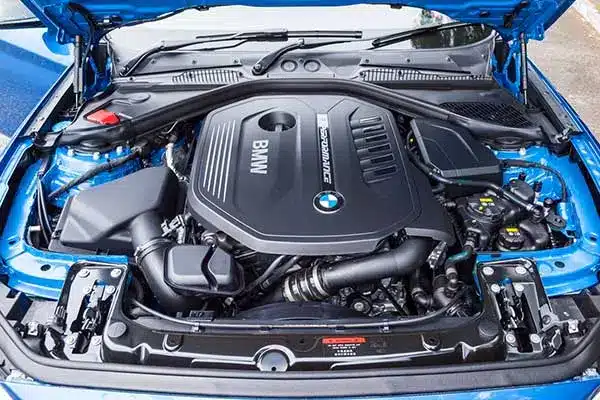
Owning a BMW is a rewarding experience, but it requires a level of care and attention to keep it running at its best. Regular service and maintenance are essential for ensuring the longevity of your vehicle, optimal performance, and safety. This guide provides an in-depth overview of BMW maintenance needs, including key service intervals, tips for maintaining your car’s performance, and expert advice for preserving the value of your BMW.
Importance of Regular BMW Service
BMWs are sophisticated machines with advanced engineering that demands a specialized approach to service and maintenance. Regular servicing helps detect potential issues before they become serious, improves fuel efficiency, and ensures your vehicle operates at peak performance. Moreover, maintaining a consistent service schedule can increase your car’s resale value.
Key Benefits of Regular BMW Service
- Enhanced Performance: Routine maintenance ensures that your BMW runs smoothly, preventing any loss of power or efficiency.
- Extended Vehicle Life: Regular servicing prevents premature wear and tear, extending the life of major components such as the engine, transmission, and brakes.
- Safety: Well-maintained vehicles are safer to drive, reducing the likelihood of mechanical failures that could compromise your safety.
- Increased Resale Value: A detailed service history can increase the resale value of your BMW by showcasing that it has been properly cared for.
BMW Service Intervals: What to Expect
BMWs are equipped with a maintenance reminder system that alerts drivers when it’s time for specific services. While the exact schedule may vary based on your model and driving habits, the following are general guidelines for when key services should be performed.
Oil Change and Filter Replacement
- Interval: Every 7,500 miles or 12 months
- Why It’s Important: Oil lubricates the engine and prevents overheating. Over time, oil breaks down and becomes contaminated with dirt, which can damage engine components. Regular oil changes ensure that your engine runs smoothly.
Brake System Inspection
- Interval: Every 10,000 to 15,000 miles
- Why It’s Important: BMW’s advanced brake systems rely on regular inspections to ensure that the pads, rotors, and fluid are functioning correctly. Worn brake pads or low brake fluid can lead to dangerous driving conditions.
Tire Rotation and Alignment
- Interval: Every 10,000 miles
- Why It’s Important: Regular tire rotations and alignments ensure that your tires wear evenly, which promotes better handling, fuel efficiency, and longer tire life.
Battery Inspection
- Interval: Every 24 months
- Why It’s Important: BMWs are equipped with high-tech electrical systems that rely on a well-maintained battery. Regular battery inspections ensure reliable starting and prevent unexpected breakdowns.
Essential BMW Maintenance Checklist
A well-maintained BMW performs better, lasts longer, and retains its value. Here is a comprehensive checklist of services you should follow to ensure your vehicle remains in optimal condition.
Engine and Transmission Care
- Oil and Filter Change: Ensure oil and filter are replaced according to the schedule.
- Transmission Fluid: Check and replace transmission fluid as recommended for smooth shifting and to extend the life of the transmission.
- Cooling System: Inspect and replace coolant to prevent overheating and engine damage.
- Fuel System: Regularly clean the fuel injectors and replace the fuel filter to maintain fuel efficiency and engine performance.
Brake System Maintenance
- Brake Pads and Rotors: Inspect for wear and replace them as needed to maintain braking efficiency.
- Brake Fluid: Check and replace brake fluid periodically to maintain optimal braking response.
Suspension and Steering
- Suspension Components: Regular inspection of shocks, struts, and springs will ensure a smooth ride and proper handling.
- Steering System: Check for leaks in power steering fluid and inspect steering components for wear.
Electrical System and Lighting
- Battery and Charging System: Test the battery and charging system for efficiency and replace the battery as necessary.
- Light Bulbs: Ensure that headlights, taillights, and other exterior lights are functioning properly for visibility and safety.
HVAC System
- Air Filters: Replace the cabin air filter to ensure a clean and comfortable interior environment.
- Coolant System: Service the air conditioning system periodically for optimal cooling.
BMW Fluids and Their Maintenance
BMWs rely on various fluids for smooth operation. Keeping these fluids at the correct levels and replacing them as needed is crucial for maintaining performance.
Engine Oil
- Function: Lubricates the engine and reduces wear.
- Maintenance: Change engine oil regularly to prevent engine damage and maintain lubrication.
Transmission Fluid
- Function: Lubricates the transmission components and prevents overheating.
- Maintenance: Regularly check the fluid level and condition to ensure smooth gear transitions and avoid premature wear.
Brake Fluid
- Function: Transfers force to the brake system and prevents brake failure.
- Maintenance: Change brake fluid to avoid moisture contamination and maintain braking power.
Coolant/Antifreeze
- Function: Prevents engine overheating and corrosion.
- Maintenance: Ensure that the coolant is at the correct level and replace it periodically to maintain engine temperature regulation.
BMW Tire Maintenance: Ensuring Safety and Performance
Proper tire care is critical to both safety and performance. BMW tires need to be checked regularly for tread wear, inflation, and damage. Here’s a quick guide to keeping your BMW’s tires in top condition.
Tire Pressure
- Ideal Pressure: Refer to your BMW’s owner’s manual for the manufacturer’s recommended tire pressure.
- Why It’s Important: Proper tire inflation ensures that your BMW handles correctly, optimizes fuel efficiency, and extends tire life.
Tire Tread
- Check Tread Depth: Inspect tires for sufficient tread depth, ideally no less than 2/32 inches.
- Why It’s Important: Adequate tread is essential for safe braking, traction, and cornering performance.
Tire Alignment and Rotation
- Alignment: Regularly align your BMW’s tires to prevent uneven wear and improve handling.
- Rotation: Rotate your tires every 10,000 miles to ensure even wear and extend tire life.
BMW Service Costs and Tips for Reducing Expenses
BMW maintenance and repair can be costly due to the precision engineering involved. However, there are ways to manage costs without compromising on quality. Here are some tips for reducing service expenses:
Schedule Preventative Maintenance
- Regular service appointments help catch minor issues before they escalate into expensive repairs.
Use OEM Parts
- Opt for original equipment manufacturer (OEM) parts, which are often more durable and cost-effective in the long term.
Why Choose Autoscope in Plano, Texas?
Autoscope offers unmatched expertise in BMW repairs, leveraging advanced diagnostics and certified technicians who understand the intricacies of BMW engineering. Here’s why Autoscope is Plano’s top BMW repair shop:
- Specialized Care: Equipped to handle BMW’s complex systems, including M-series and hybrid models.
- Transparency: Detailed diagnostics and upfront pricing.
- Convenience: Located in Plano, Autoscope provides efficient service without compromising quality.
- Commitment to Excellence: Decades of experience and a passion for European cars make Autoscope the trusted choice for BMW enthusiasts.
For expert BMW repair and maintenance in Plano, Texas, visit Autoscope and ensure your Ultimate Driving Machine remains in optimal condition.

